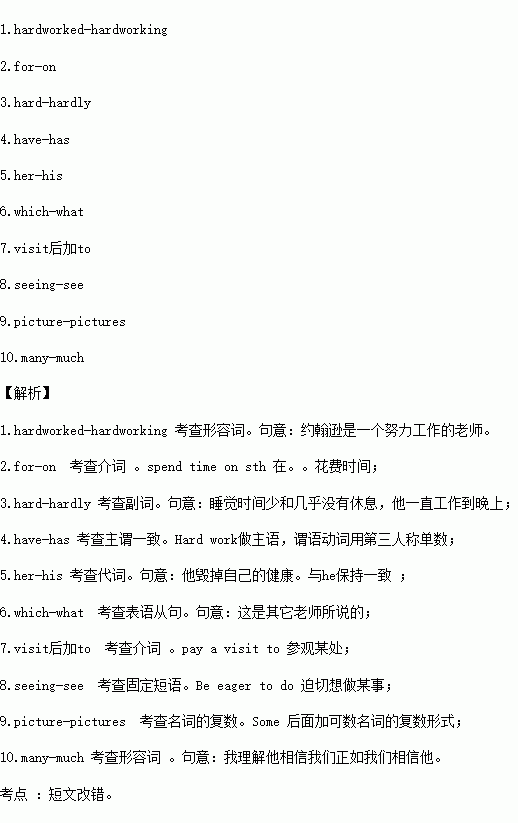��Ŀ����
���ĸĴ�
�ٶ�Ӣ�������ʦҪ��ͬ��֮�佻�������ģ���������ͬ��д���������ġ����й���10�����Դ���ÿ���������������ÿ��������漰һ�����ʵ����ӡ�ɾ�����ġ�
���ӣ���ȱ�ʴ���һ��©�ַ��ţ��ģ�������������д���üӵĴʡ�
ɾ�����Ѷ���Ĵ���б�ߣ�\��������
�ģ��ڴ��Ĵ��»�һ���ߣ����ڸô�����д���ĺ�Ĵʡ�
ע�⣺1.ÿ���������ľ���һ�ʣ�
2. ֻ������10�������ߣ��ӵ�11���𣩲��Ʒ֡�
Mr. Johnson is a hardworked teacher. Every day, he spends too much time for his work. With little sleep and hard any break, he works from morning till night. Hard work have made him very ill. ��He has ruined her health. We are worried about him.�� That is which other teachers say. Yesterday afternoon, I paid a visit Mr. Johnson. I was eager to seeing him, but outside his room I stopped. I had to calm myself down. Quietly I stepped into the room. I saw him lying in bed, looking at some of the picture we had taken together. I understood that he missed us just as many as we missed him.

